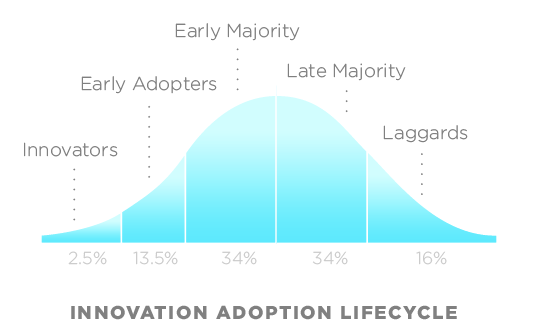As the Founder and CEO of the Stocki Exchange , a 5 years of age hospitality consulting company, John Stocki has actually discovered an enthusiasm in dealing with customers who are never ever happy to go for ““ sufficient ” and continuously make every effort to be the very best.
.
Before establishing his own company, John got a Bachelor’’ s degree in Hospitality and Tourism Management in 2007, and discovered his enthusiasm for hospitality with Kempinski Hotels with a position as the Marketing and Public Relations Executive for a high-end 5-star residential or commercial property in the United Arab Emirates. 3 years and a number of promos later on, he moved to another Kempinski Hotel in Dalian, China where he handled their Marketing and eCommerce department. Upon his go back to the United States in 2012, John started talking to Choice Hotels International to establish e-learning material and online training products for over 6,400 hotels worldwide.
Today, John deals with a series of various customers, helping them in providing on their brand name assures and reacting to the obstacles these days’’ s ever-changing market and customer needs. He is likewise the Host and Travel Expert for a brand-new high-end hotel TELEVISION program called Great Escapes that will release around the world to an approximated 2 million audiences in the fall of 2017.
We took a seat with John to discover more about his experience and what he sees for the future of hospitality.
.Inform us about the Stocki Exchange. What is it and what do you intend to achieve for your hotel customers?
The Stocki Exchange is a hospitality consulting company I established in 2012 after my return from working and living in hotels throughout Australia, United Arab Emirates, and China for over 5 years. My international experience permits me to supply a special viewpoint on the market for my customers. I continuously motivate them to ask ““ why, ” permitting them to adjust and embrace to alter rapidly.
.What huge modifications have you observed in the hospitality market in the last few years?
One of the greatest patterns I have actually seen in the United States is the turnaround of the cookie cutter hotel design that has actually ruled for the last 3 years. Gone are the days of every hotel brand name having the exact same color bed spread, check in counter, features, and so on. A shift in customer habits, oftentimes credited to the Millennial generation, sees visitors actively looking for special, unique experiences. That is the brand-new standard, and brand names are reacting. Lots of business are diversifying their brand name portfolios to target emerging demographics such as business tourist Millennial. Marriott has actually just recently introduced numerous brand-new brand names consisting of Aloft, Element, Moxy, and Protea, which are all boutique-style homes with an extremely particular target group. Hilton has actually done the exact same with its Canopy, Curio, and Tru brand names.
.What are the greatest obstacles hotels are dealing with today?
While possibly not the latest obstacle, however definitely a big one, is a hotel’’ s capability to drive as lots of direct reservations through its top quality site as possible. In my experience, this began for 2 particular factors. The increasing commissions paid to Online Travel Agents (OTA) for reservations cut too far into hotel margins and impact success. With the remarkable development and debt consolidation of lots of OTAs, the online market for hotel reservations is now mostly managed by Priceline, Expedia, TripAdvisor, and their subsidiaries. With their low overhead, substantial internet marketing budget plans and huge customer reach, these brand-new OTA leviathans can now command online search engine rankings, outbid lots of hotel brand names for Google Advertisement positionings, and need greater commissions.
Bigger brand names like Marriott, which handles over 30 brand names that have more than one million spaces worldwide, will likely have the very best chance at contending in these fights. The smaller sized brand names who have substantially less marketing resources will continue to deal with numerous obstacles in driving direct reservations. It’’ s a constant fight for smaller sized groups and independent hotels to stay up to date with continuously altering customer habits and the growing digital circulation landscape. Smaller sized hotels brand names need to choose whether it’’ s worth the perseverance, time, and cash associated with running your own customer marketing projects, or whether they need to simply pay the commissions to OTAs who have an ever-growing customer reach.
Accor Hotels has actually taken a brand-new method to their relationship with OTAs by stating, if you can’’ t beat em’’, sign up with em ’. See AccorHotels.com and you’’ ll see that a search for hotels in San Francisco not just reveals Accor Hotels, however likewise other rival hotels. By doing this, they’’ re believing that they provide more choices, and for that reason a much better option for their customers, comparable to the methods the OTAs develop brand name trust with customers. The threat here is that customers utilizing the Accor website will make a reservation at a rival hotel rather of their own. Yes, Accor might not have actually gotten a reservation for among their hotels this time, however by using an OTA-like service, it did make a commission from the hotel that was scheduled from the brand name website. It will be intriguing to see whether this gamble of imitating the OTAs by using more alternatives to the customer through the brand name site will settle. Will Accor get enough strong, long-lasting visitor commitment that it ultimately gets a sustainable levels of commission profits and reservations to their own hotels? Just time will inform.
The 2nd factor to concentrate on direct reservations is the continuous battle to keep and develop brand name commitment. In today’’ s digital world, where access to details about hotel rates from countless various sites is readily available in seconds, this is definitely a burden. Furthermore, a current short article describes that today’’ s most in-demand customer, Millennials, are more brand name devoted than you believe . Historically, catching attention and brand name commitment was mainly done through marketing, however research study reveals Millennials pick the brand names they are devoted to through a brand name ’ s experience, its objective, engagement, and level of customization.
. We reside in the age of “ minutes ” and it is impacting brand name commitment.Do you believe this pattern is “currently” impacting hotels in the United States?
Without a doubt we reside in a world of micro-moments experienced both online and offline. I call this the digital blur. Whereas the Internet utilized to be a location where individuals go when they needed to await the dial-up connection and had many hours per today, rsquo &month; s customer is linked 24/7 which requires brand names have a vibrant omni-channel brand name existence. Brand names that provide a smooth individual experience from digital channels through on-property execution and post-stay interaction will discover the success they ’ re searching for. For today ’ s customer, it needs to be more than individualizing an e-mail blast with “ Dear John ” as the heading and more of truly discovering what I value and forming my expectations to match “. Those who” entirely concentrate on one element to record market share, such as rate, will continually remain in a race to the bottom and have a few of the most affordable levels of consumer commitment.
.
Perception is truth and brand names that can most precisely handle the expectations of their customers and overdeliver will regularly win.
. In a current post on your blog site, you speak about the 3 methods hotels can take on the OTAs. Why is this so crucial?
The very first and essential factor is fundamental economics. With incredible competitors for conventional hotels in numerous currently over-saturated United States markets,uber-educated customers, and the significant development and appeal of house sharing services like AirBnB and HomeAway, numerous aging and out-of-date hotels can not pay for to lose anymore market share or pay increasing commissions to OTAs without going under. Today ’ s customers are more notified and have access to info at extraordinary levels. They require openness and put on ’ t like the sensation of getting swindled. Obviously, nobody likes the sensation of getting duped, no matter the generation, however in today ’ s digital world where individuals have access to this online details spreading out like wildfire, managing rate parity through online channels has actually never ever been more crucial to preserving brand name commitment. When it pertains to innovation, do you think hoteliers are adjusting themselves rapidly enough to the tech transformation?
.
It ’ s a variety. The fundamental danger of being an early-adopter to innovation is that the marketplace of customers who care in the beginning is reasonably little compared to the total population. As soon as a brand-new innovation ends up being too traditional, customers move on to the next brand-new thing’. We see this pattern occurring at breakneck speeds as everybody is attempting to end up being the next Mark Zuckerberg and investor are attempting to revenue by ending up being early financiers in whatever tech transformation takes place next. For hotels in specific, innovation adoption at scale can be really expensive, and it can be extremely challenging to compute the ROI of including brand-new tech like hotel space door locks that can be managed by cellphones. The attention period these days ’ s customer resembles that of a young puppy chasing after a butterfly and modifications to customer innovation are occurring at warp speed. It ’ s hard to figure out whether this financial investment in innovation improvements truly drive enough reservations to reveal an ROI.
.

.
Image Source: Wikipedia
At heart, I ’ m a real romantic when it concerns hospitality, which is among the earliest markets on our world. No matter just how much innovation automates the hotel experience, eliminating the points at which visitors are needed to engage with a human, I think that human interaction will never ever absolutely vanish.’This is necessary to the visitor experience – the capability to talk with a genuine individual who can reveal compassion and enthusiasm, somebody who genuinely cares that visitors have unforgettable experiences, is irreplaceable.
.
As with any market, by selecting the function of early adopter, the prospective benefits are straight associated to the threats. For hotels, those with a greater tolerance for – threat will likely win customer attention and the resulting revenues prior to the bulk captures up on a brand-new innovation. They ’ ll most likely likewise lose some of those bets and suffer the effects. Other, more risk-averse hotels, will discover and partially gain from with little ill impact, however they won ’ t have the exact same capability to benefit huge by being the very first to market with the next glossy brand-new thing. Innovation adoption is a double-edged sword. It ’ s harmful and effective at the very same time, however its effectiveness truly depends upon who is holding the sword.
. Are hotels today satisfying the expectations of the modern-day tourist?
Many are on’an excellent course, however there is constantly space for enhancement and development. Lots of smaller sized hotel brand names and operators are still reluctant to embrace the digital transformation, particularly, the mobile-focused innovation that today ’ s tourist is utilizing to research study to make a notified and informed choice on where to invest their hard-earned cash. Client engagement and genuine customization are locations where numerous hotel brand names have a great deal of chance to grow.
.
As formerly discussed, big hotel brand names such as Marriott and Hilton have actually diversified their offerings, picking places that match’well with Millennial customers ’ travel practices and needs. Independent hotels might have a small benefit in particular leisure travel markets as they might provide a more genuine and distinct experience. The obstacle they deal with will be having the marketing capability and spending plans to drive customer awareness of their brand/hotel.
. What do you believe are the greatest chances for hotels concerning the visitor experience?
Guest experience development is a subject I talk about in depth with much of my customers and with other market specialists. The method I approach the visitor experience is the idea of handling expectations and over providing.
.
This is unconditionally various than the underpromise and overdeliver method, as I wear ’ t think under guaranteeing to start with is a clever relocation from a brand name viewpoint. Openness and credibility are the secrets here. By effectively handling each visitor’s expectations you have a much better concept of how to individualize each visitor ’ s experience and knock their socks off with something that reveals you comprehend them.
.
Thankfully, individuals like to discuss themselves and with the introduction of social networks’, discovering info about an individual’s likes or dislikes isn ’ t too difficult to do. Utilizing that info to customize a visitor experience can amaze a visitor is a favorable method and is an excellent method to develop a relationship that reveals you really appreciate them as an individual and not simply as a reservation.
. Do you think about the Sharing Economy, or short-stay leasings, a direct rival for hotels in the USA?
Yes, 100%, and not just for the USA. Current research study has actually revealed that websites like AirBnb are being utilized greatly by individuals and residential or commercial property management business as a genuine, revenue-generating service design (rather than somebody simply seeking to make a couple of dollars from their extra space). With less limitations, licenses, security requirements, and allows, these services are being utilized by individuals or business with industrial objectives. Lots of in the hospitality market think it develops an unjust benefit and prospective threats to visitors. In easy terms, hotels truly put on ’ t like it.
.
At the very same time, the market will choose who wins and with the current quotes positioning AirBnb to be worth $30 billion with a looming IPO, they need to be doing something. Hotel lobbying companies are currently defending equivalent requirements for running a home through a house sharing website versus a conventional hotel, however just the future well inform whether those requirements will come true.
. How is the relationship in between hotels and these brand-new gamers establishing?
Based on the countless bed, resort, and hotel &breakfast( B&B) owners I ’ ve spoken with, I can rely on both hands the variety of them who were pleased with the most recent house sharing pattern. Practically every among them has the very same problem. Individuals who run homes through house sharing websites have nearly none of the legal requirements that hotels or B&B s need to adhere to. From health and fire security to Americans with Disability Act( ADA )compliance, hotels are needed to keep a stringent set of requirements to guarantee visitor security, availability, and security. Those using house sharing websites are not held to the exact same requirements, which truly doesn ’ t agree with hoteliers or B&B operators.
.
I think that the relationship in between these 2 entities will be really comparable to the battle that ridesharing&services like Uber or Lyft are presently waging with conventional taxi business. Eventually, regulative authorities such as the Federal Trade Commission (FTC) might end up being involved however it ’ s not likely. Significance, it will depend on each State or city government to embrace their own limitations and policies for house sharing services to run in their jurisdiction.
The post Exclusive Interview: John Stocki, Founder and CEO of Stocki Exchange appeared initially on Revinate .
Read more: revinate.com







